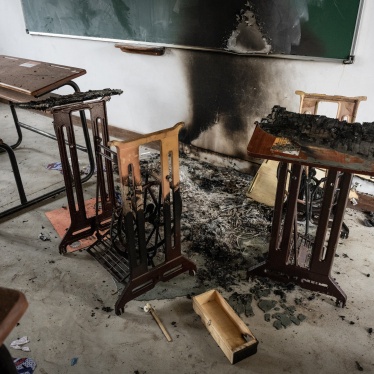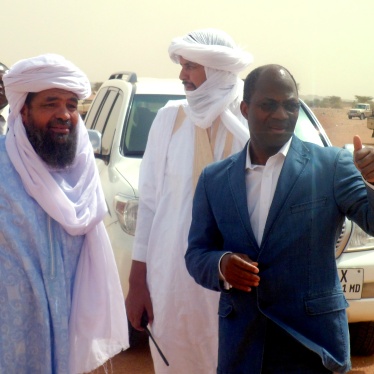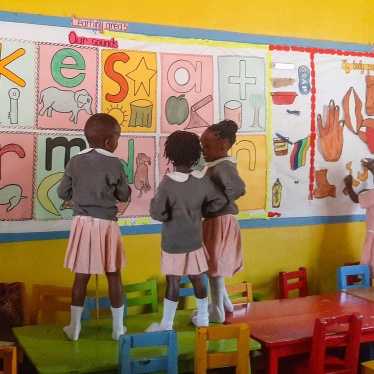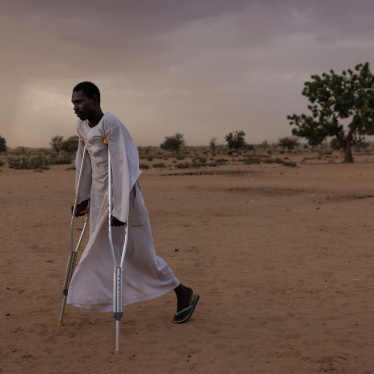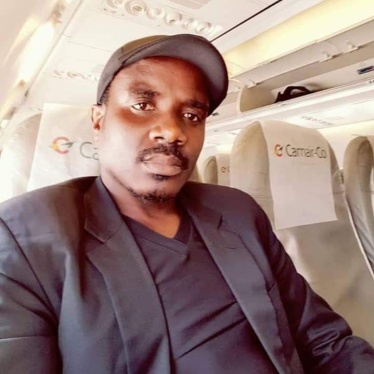Your Excellencies,
We are forwarding for your consideration a copy of our new report on Sudan, released today: “Entrenching Impunity: Government Responsibility for International Crimes in Darfur.”
Our report provides compelling evidence of state responsibility—at the highest levels of the Sudanese government—for war crimes and crimes against humanity in Darfur. It identifies some of the individuals we believe should be investigated by the Prosecutor of the International Criminal Court (ICC) for individual or command responsibility for the atrocities in Darfur, including militia leaders such as Sheikh Musa Hilal, state governors such as Adam Hamid Musa, and senior leaders such as President Omar El Bashir.
Almost nine months have passed since the Security Council’s important March 2005 resolutions referring the situation in Darfur to the ICC and establishing the Sanctions Committee and Panel of Experts. While the ICC investigation will clearly require time to establish a solid evidentiary basis for indictments and prosecutions, the Sanctions Committee’s delay in identifying individuals eligible for sanctions is less clear.
The situation in Darfur remains one of the world’s worst humanitarian and human rights crises. Tens of thousands of people have been killed or suffered torture, rape and other abuses since the conflict began in early 2003, the vast majority at the hands of Sudanese government forces and the government-backed militias known as the “Janjaweed.” These abuses amount to war crimes and crimes against humanity. More than two million displaced people remain confined in camps, unable to return to their homes due to the continuing violence. The longer the violence continues and the displaced are unable to return home, the easier it will be for the perpetrators of “ethnic cleansing” to consolidate their gains.
Human Rights Watch believes that if there is to be significant improvement in the situation in Darfur, it is imperative that the Security Council act now in the following areas.
End impunity of government officials
As described in our new report, the impunity from prosecution conferred by the Sudanese government upon government officials, military and militia commanders and others is now becoming entrenched, and strongly contributes to the ongoing violence against civilians.
Despite widespread condemnation of its policy in Darfur by U.N. member states and by the Security Council itself in resolutions 1556, 1564, 1591 and 1593, to date the Sudanese government has made no genuine effort to bring to justice any of the mid-or high-level officials responsible for serious crimes in Darfur. The blatant impunity of these individuals, some of whom remain in their positions as regional governors and commissioners and military and militia commanders and all of whom remain free from investigation or prosecution, signals to people across Darfur that the Sudanese government’s policy of targeting civilians on an ethnic basis remains unchanged. As noted in our report, we are urging the ICC to include regional officials as well as military and militia commanders in the scope of their investigation.
In the meantime, however, the situation in Darfur continues to deteriorate and further pressure from the Security Council on the Sudanese government is needed. We therefore urge the Security Council to highlight this issue in the following manner:
• Pass a resolution calling on the Sudanese government to: suspend from duty, investigate and prosecute government officials, military and militia commanders, soldiers, Popular Defense Force members and police officers responsible for serious violations of international human rights and humanitarian law; establish an internationally monitored compensation fund for victims of human rights violations and war crimes; fully cooperate with the ICC; stop obstructing African Union Mission in Sudan (AMIS) operations; and support proactive patrolling and other AMIS measures to protect civilians.
Promptly apply individual sanctions
Nine months after the passage of resolution 1591, not a single individual has been subjected to travel sanctions, asset freezes, or even designation on a sanctions list. Despite the fact that numerous individuals have been responsible for human rights abuses and acts that could be interpreted as “impeding the peace process,” the resolution remains an empty threat.
The buildup of arms in Darfur is proceeding apace and “Janjaweed” militia and rebel groups continue to commit abuses against civilians with impunity. The Sudanese government has not once sought the permission of the Sanctions Committee to introduce new military equipment and material into Darfur, and in violation of paragraph 7 of Resolution 1591 has reintroduced Mi-24 attack helicopters and moved significant numbers of troops into Darfur in the past months. Rebel groups and government-backed “Janjaweed” militias also continue to respectively import and receive arms and other supplies in violation of the resolution.
Human Rights Watch urges the Security Council to:
• Renew the mandate of the Sanctions Committee Panel of Experts and ensure that its recommendations are promptly implemented by the Sanctions Committee of the Security Council, and that a list of individuals eligible for sanctions is promptly compiled and penalties immediately placed on those individuals identified as in violation of resolution 1591.
Review protection needs in Darfur
Continuing attacks on civilians in Darfur remain a paramount concern for Human Rights Watch. As noted above, the absence of accountability and the Sudanese government’s continuing abusive policies are fundamentally responsible for the ongoing violence. The reluctance of the Security Council to take meaningful action to force the Sudanese government to comply with its demands has also contributed to the deteriorating situation in Darfur.
In the short-term, AMIS is the best hope for immediate and improved protection of civilians in Darfur. However, AMIS, which now has almost 7,000 personnel on the ground, faces an uncertain future on account of high costs, erratic funding, and mounting attacks on its forces and on the civilian population it is supposed to protect. Although the U.N. Department of Peacekeeping Operations and others have been working closely to assist the African Union in logistics and planning in order to make the mission a success, there is a distinct possibility that it may become necessary to transition from AMIS to a U.N.-based peacekeeping operation in Darfur.
Human Rights Watch therefore calls on the Security Council to:
• Instruct the Department of Peacekeeping Operations to work closely with the African Union to intensify a review of long-term protection needs in Darfur and how improved protection can be achieved through closer collaboration.
Human Rights Watch urges your government to immediately co-sponsor a resolution incorporating the above points. We would be pleased to meet with you to discuss any of these issues in more detail.
Sincerely,
Peter Takirambudde
Executive Director, Africa Division
Human Rights Watch
